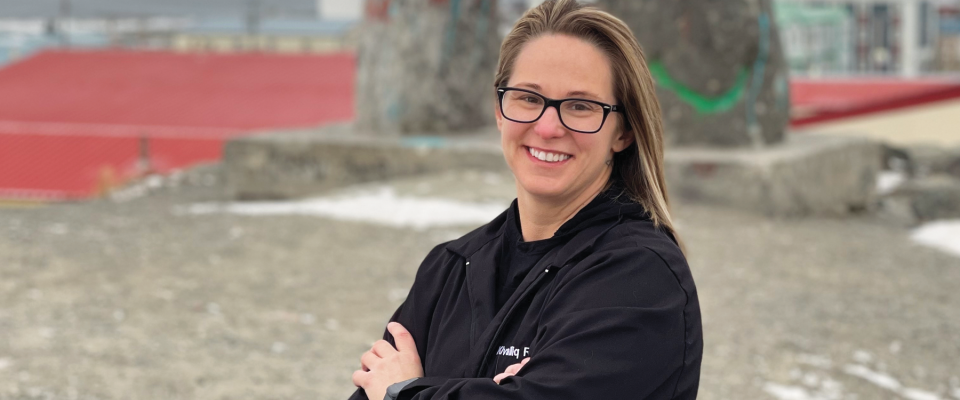Amanda Arsenault is a registered pharmacy technician who has spent the last nine years working in Rankin Inlet, making sure eight community health centres in Nunavut have the medical supplies they need. Despite the complexities of supplying for northern communities that require air freight shipments, Amanda has always worked alone.
Recently, though, Amanda’s employer hired another worker to assist with the coordination. She’s relieved to finally have additional help because even now, with two pharmacy technicians, the work is piling up.
PSAC represents approximately 4,000 health care workers across the country, and many face similar staffing issues, which have been amplified since the pandemic. In the North, chronic understaffing has been a problem for decades, and it’s only getting worse.
For Heidi Young, a community health nurse in Nunavut, insufficient staffing means she’s often doing the job of two or three people at once.
“The community health centre model is really good,” said Young. “Nurses run immunization programs, provide prenatal care and so much more. But because we have so few nurses, we’re constantly putting out fires and I’m forced to prioritize emergencies. This leaves little time for preventative care.”
Christian Norwick is an ICU nurse in Yellowknife, but regularly wears several different hats. He also cleans, liaises with families, and helps with patient rehabilitation — tasks that would usually fall on a janitor, social worker, and physiotherapist.
Working in chronically understaffed conditions means few or no colleagues to talk to and share the workload. “All our issues in the workplace are related to staffing,” he said. “People are being denied vacation requests and burning out and there are more and more gaps in patient care.”
According to Northern Health Care Matters, rather than staffing up, territorial governments have been paying millions of dollars to hire contract workers from private agencies, which is an inefficient and costly short-term solution.
Agency workers come in for short periods of time and often don’t know how to do the work required, yet these workers are earning double or triple the pay of government health workers. This only creates more work for our members who are already on the brink of burnout.
Contract workers also rarely receive proper cultural sensitivity training. Access to culturally relevant health care is an essential part of reconciliation with Indigenous peoples but is impossible when communities are left without reliable services.
Amanda, Christian and Heidi agree that it’s time for governments to take the health care crisis seriously. In the North, it starts with competitive wages that reflect the cost of living and good, secure jobs.
“The money spent on private agencies could be spent on long term solutions like retention programs, incentives, and training for northerners to become health care workers,” said Norwick. “It could be spent on community programming that benefit the people who live up North.”
Privatization in our health care system hurts workers, patients, and their families. It’s time to focus on made-in-the-North health care that puts people first.
 Member Login
Member Login



